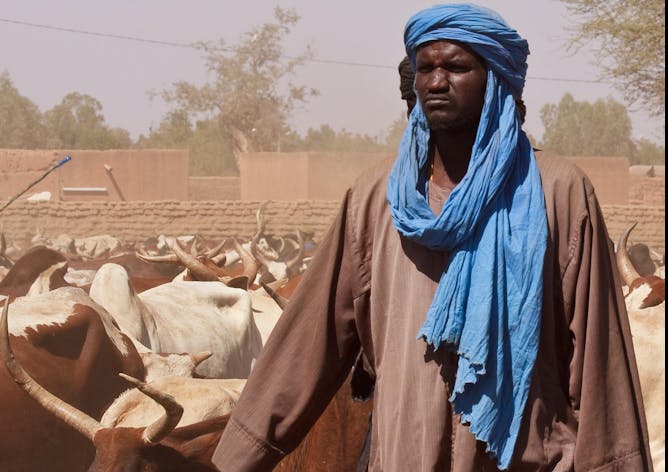|
Insurgents have returned to Mali. A host of reasons have been put forward, including the weakening of the state, the French and later UN military interventions, and the complex and changing Islamic national landscape. What’s not been looked at sufficiently is the local political context, particularly access to resources. Tor Benjaminsen argues that this is where a huge part of the problem lies.
Another recent case of a hoax academic study being peer-reviewed and published in a journal made headlines and left many shaking their heads about the state of academia. Alex Broadbent suggests that the hoax offers a good opportunity to consider the problems - particularly within the disciplines of humanities - and a chance to consider some solutions.
|

In Mali, pastoralists have become increasingly disgruntled with a predatory and corrupt state.
Flickr/Mary Newcombe
Tor A Benjaminsen, Norwegian University of Life Sciences
Herders and farmers are unhappy about the way a corrupt state exploits rural peasants.
|

Shutterstock
Alex Broadbent, University of Johannesburg
Recent hoax papers in humanities don't show what they claim, but need to be taken seriously.
|
Politics + Society
|
-
Anton Harber, University of the Witwatersrand
A new book celebrates the long and rich history of investigative reporting in southern Africa, and highlights some hidden and forgotten gems.
|
|
Health + Medicine
|
-
Nicole Wolter, National Institute for Communicable Diseases
There have been many advances made in the prevention and treatment of pneumonia, but proving for people's basic needs can help reduce the disease burden.
|
|
Business + Economy
|
-
Dirk Kotze, University of South Africa
Moyane's axing ends one of the last vestiges of Zuma's continued influence in the country's governance.
|
|
From our international editions
|
-
Jean Twenge, San Diego State University
As their kids get older, should parents should be more – not less – vigilant?
-
Adrian Osbourne, Swansea University
Dylan Thomas's early short stories were shocking, obscene, and a sign of things to come
-
Donna Hauser, University of Alaska Fairbanks; Harry Stern, University of Washington; Kristin Laidre, University of Washington
Climate change is shrinking Arctic sea ice and opening the region to ship traffic. Whales, seals and other marine mammals could be at risk unless nations adopt rules to protect them.
|
|